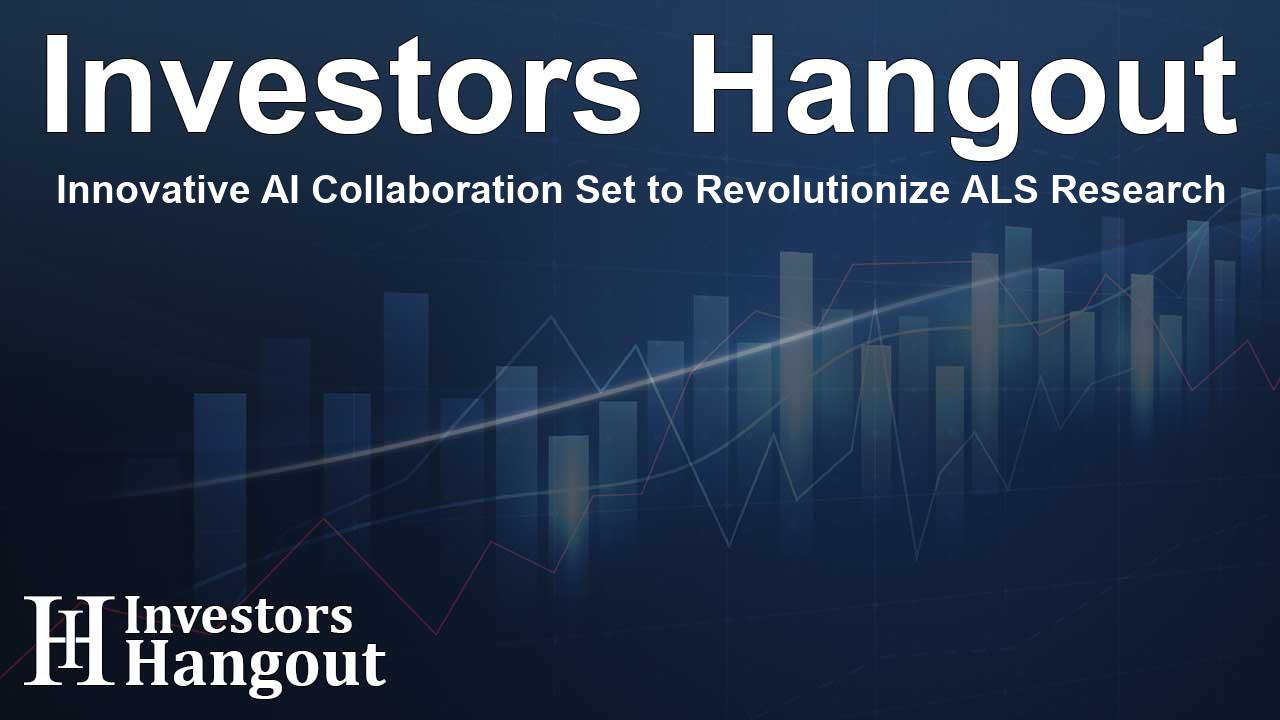Innovative AI Collaboration Set to Revolutionize ALS Research

Advancing ALS Research through AI Collaboration
Answer ALS has recently forged a ground-breaking partnership that aims to usher in a new era in ALS treatment discovery. This initiative, known as the Louisiana AI Drug Development Infrastructure for ALS (LADDIA), involves collaboration with top-tier institutions such as GATC Health, Pennington Biomedical Research Center, and Tulane University. By utilizing cutting-edge AI technologies, these organizations intend to leverage one of the world's largest ALS datasets to expedite drug discovery processes.
Collaborative Innovation
This collaboration is spurred by a commitment from the State of Louisiana, which is investing in enhancing neuroscience research and innovation. The goal is clear: to position Louisiana as a leader in blending artificial intelligence with biomedical research, specifically related to ALS treatments.
Leadership and Expertise
Dr. Jeffrey Keller of Pennington Biomedical and Dr. Aron Culotta of Tulane are at the forefront of this initiative, coordinating efforts among researchers while harnessing the expertise of various sectors including AI, drug discovery, neuroscience, and clinical care. As ALS currently has no known viable treatments, the aim of LADDIA is to revolutionize this landscape.
A Vision for the Future
Clare Durrett, the Executive Director of Answer ALS, stated, “This collaboration represents more than just a research partnership; it’s a strategic investment into the future of ALS discovery. By harnessing Louisiana's top capabilities and the advanced AI technologies we have, we can foster real-time collaborations to aid in the identification of druggable pathways.”
Phased Implementation
LADDIA will be executed in two primary phases:
- Phase One: This phase will concentrate on establishing the collaborative framework, attracting local talent, and aligning institutional capabilities while setting the groundwork for AI-driven drug discovery.
- Phase Two: Activating the foundation established in Phase One, this stage will focus on advancing collaborative projects, refining AI models, and yielding significant scientific outcomes across all participating institutions.
AI's Role in Transforming Healthcare
Dr. Keller emphasized the transformative potential of AI, stating, “Utilizing this remarkable technology to pursue treatments for ALS and neurodegenerative diseases represents one of the most significant applications.” This project illustrates AI's promising place within healthcare as it seeks to identify unseen patterns that may lead to effective ALS treatments.
Collaboration Goals
One of the principal objectives is to utilize AI-powered insights from Answer ALS' Neuromine Data Portal to prioritize therapeutic targets. Dr. Rahul Gupta, GATC Health's president, expressed pride in this alliance, noting its aim to uncover druggable targets with predictive accuracy. He believes this partnership showcases a new model for quickly discovering novel therapeutics for diseases with a desperate need for effective treatments.
Long-term Impact and Vision
The initiative is set to yield joint research publications, valuable discoveries, and a long-term roadmap that solidifies Louisiana's position at the forefront of AI-driven medical innovation. The approach taken by LADDIA and GATC could potentially serve as a scalable model for addressing other complex diseases, ranging from Alzheimer’s to chronic pain, through successful public-private collaborations.
AI and Biomedical Research Synergy
Dr. Culotta pointed out that this collaboration accentuates AI's potential to reshape healthcare delivery. With Tulane's resources combined with institutional expertise, the aim is to accelerate impactful AI solutions for ALS and other health concerns.
Answer ALS’s commitment to building essential tools and partnerships for fighting ALS continues with the launch of LADDIA, another significant step towards addressing this challenging disease.
Frequently Asked Questions
What is the purpose of the LADDIA initiative?
LADDIA aims to accelerate AI-driven drug discovery for ALS and enhance treatment options for neurodegenerative diseases.
Which organizations are involved in the LADDIA collaboration?
The collaboration includes Answer ALS, GATC Health, Pennington Biomedical Research Center, and Tulane University.
How will the initiative be implemented?
LADDIA will be implemented in two phases: building foundations in Phase One and advancing collaborative projects in Phase Two.
What role does AI play in this research?
AI will be used to analyze data, identify druggable pathways, and foster collaboration among various researchers and institutions.
How can this initiative impact the future of ALS research?
This initiative could potentially pave the way for new treatment discoveries, improving the lives of patients suffering from ALS.
About The Author
Contact Addison Perry privately here. Or send an email with ATTN: Addison Perry as the subject to contact@investorshangout.com.
About Investors Hangout
Investors Hangout is a leading online stock forum for financial discussion and learning, offering a wide range of free tools and resources. It draws in traders of all levels, who exchange market knowledge, investigate trading tactics, and keep an eye on industry developments in real time. Featuring financial articles, stock message boards, quotes, charts, company profiles, and live news updates. Through cooperative learning and a wealth of informational resources, it helps users from novices creating their first portfolios to experts honing their techniques. Join Investors Hangout today: https://investorshangout.com/
The content of this article is based on factual, publicly available information and does not represent legal, financial, or investment advice. Investors Hangout does not offer financial advice, and the author is not a licensed financial advisor. Consult a qualified advisor before making any financial or investment decisions based on this article. This article should not be considered advice to purchase, sell, or hold any securities or other investments. If any of the material provided here is inaccurate, please contact us for corrections.
